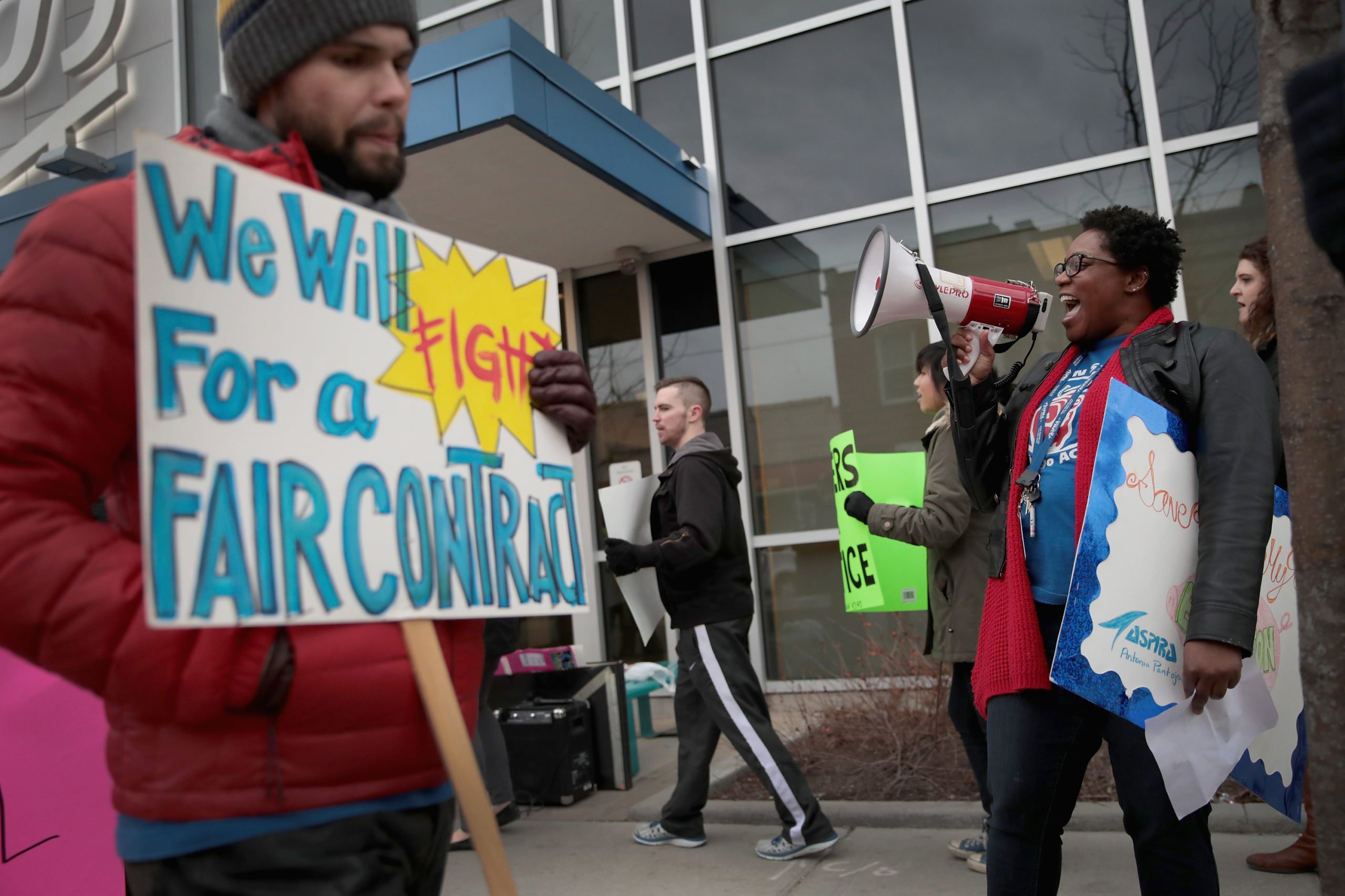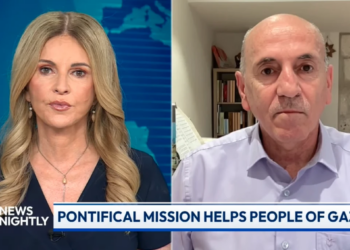“Climate justice” provisions in the Chicago Teachers Union’s (CTU) new contract are colliding with financial reality as the city’s low-performing public school system faces a projected $734 million budget shortfall.
CTU’s $1.5 billion collective bargaining contract with the Chicago Board of Education, ratified in April, cemented many of the union’s climate demands, including the formation of a Green Schools and Climate Preparedness Committee, the installation of solar panels, and the construction of new “green” school facilities. Supporters tout the deal as a “strategic use of capital,” but critics say it reflects misplaced priorities in a school district already struggling with a budget deficit, falling enrollment and chronically low academic achievement.
“Instead of finding ways to improve student performance in the classroom, the Chicago Teachers Union spent their bargaining time negotiating for costly, environmental policies in their latest contract,” Mailee Smith, senior director of labor policy for the Illinois Policy Institute, told the Daily Caller News Foundation. “Chicagoans just want somewhere safe to send their kids so that they will learn how to read and become independent. Bargaining over other topics serves as a distraction from CTU’s poor financial record and record in the classroom.” (RELATED: ‘In A Matter Of Seconds’: Chicago Sees 18 People Shot, 4 Killed In Single Drive-By Shooting)

CHICAGO, IL – MARCH 09: Eleshia Smith leads teachers with ASPIRA charter school network in chants during a rally outside an ASPIRA high school on March 9, 2017 in Chicago, Illinois. (Photo by Scott Olson/Getty Images)
In June, the Chicago Board of Education approved the Healthy Green Schools Pilot Program to begin implementing many of the contract provisions, including funding “clean energy” projects such as rooftop solar, geothermal systems and heat pumps in so-called “Environmental Justice” communities.
“This isn’t an added expense — it’s a more strategic use of capital funds,” Board Member Yesenia Lopez said about the program. “By investing in clean energy today, CPS can reduce utility and maintenance costs over time — allowing more resources to flow to our students.”
Still, CPS must grapple with a $734 million budget shortfall. Rather than support spending cuts, CTU President Stacy Davis Gates has called for “taxing the rich” to fill the gap.
Union officials have adopted the “bargaining for the common good” framework, which emphasizes “climate justice” alongside other left-wing demands, such as support for Black Lives Matter, opposition to collaboration with Immigration and Customs Enforcement (ICE) and resistance to charter schools.
“What our union does, I think, better than most places is we connect the dots,” CTU President Gates said in a June 2024 interview with E&E News. “Poverty doesn’t just manifest in school policy; it manifests in environmental policy and manifests in housing policy. So the impacts that we are experiencing in our school communities are connected.”
While the union expands its “common good” political mission, student outcomes in Chicago remain bleak.
Only one in three CPS students can read at grade level, and one in five can perform math at grade level, according to 2024 data analyzed by the Illinois Policy Institute. A CPS spokesperson cited “the significant academic progress our students have made since the pandemic” when contacted for comment, but did not address the persistently low proficiency rates.
Meanwhile, CPS is operating 150 schools at half capacity, and 47 with less than a third of their capacity, a recent ProPublica investigation found. One high school with just 28 students is costing the district $93,000 per pupil.
Nevertheless, CTU has historically opposed closing schools operating severely under capacity.
“The most environmentally friendly thing Chicago Public Schools could do is reorganize their extremely under-enrolled campuses, but instead, CTU wants to spend tax dollars on solar panels and other ‘green school initiatives,” Smith said. “Consolidation would benefit both students and the environment, however, this would likely eliminate union positions, which CTU would never allow.”
CTU’s new contract will raise the average CPS teacher salary from $86,439 to $114,429 by 2028, while also reducing the frequency of performance evaluations for some educators.
CTU did not respond to the DCNF’s request for comment.
All content created by the Daily Caller News Foundation, an independent and nonpartisan newswire service, is available without charge to any legitimate news publisher that can provide a large audience. All republished articles must include our logo, our reporter’s byline and their DCNF affiliation. For any questions about our guidelines or partnering with us, please contact licensing@dailycallernewsfoundation.org.









![Soros Network, Others Behind LA Riots [WATCH]](https://www.right2024.com/wp-content/uploads/2025/06/Soros-Network-Others-Behind-LA-Riots-WATCH-350x250.jpg)





